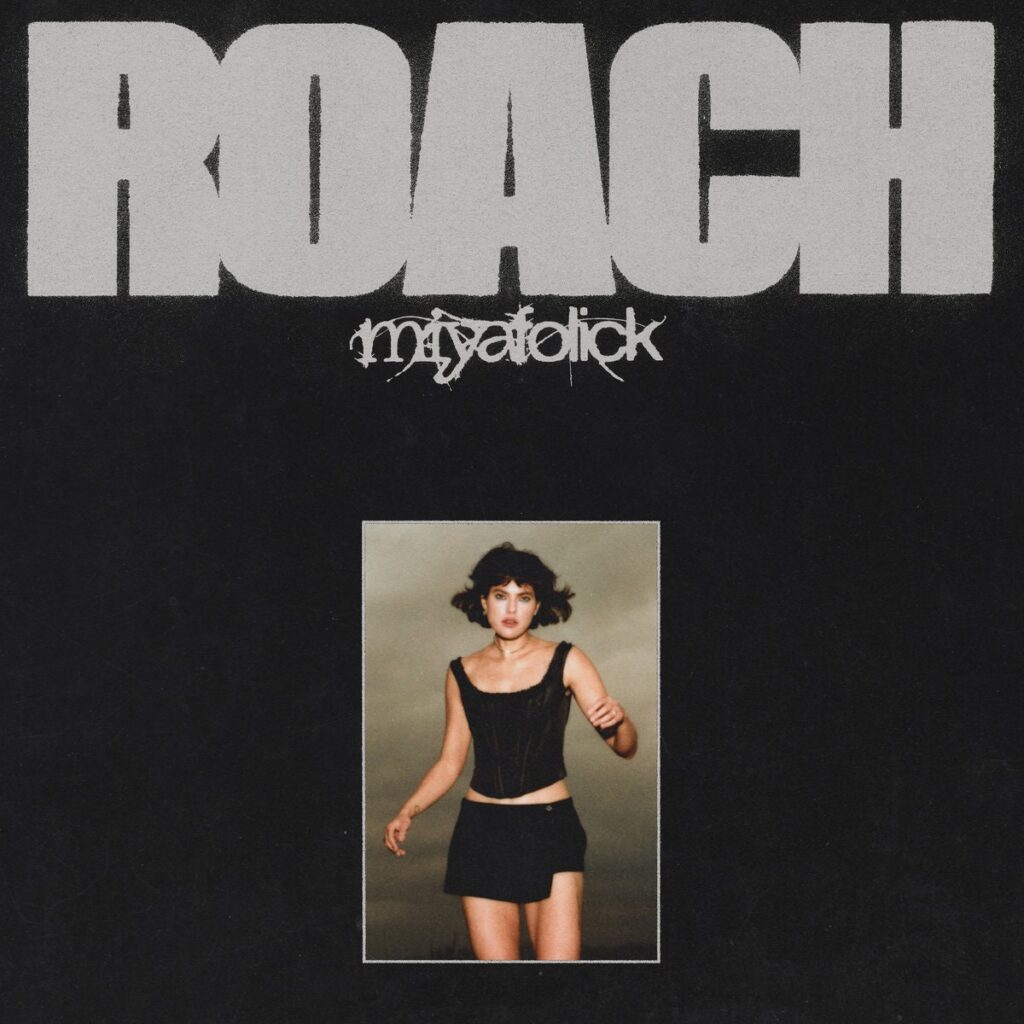On Roach, the sophomore album from Miya Folick, the Los Angeles singer-songwriter grounds her quarter-life crisis in the banality of everyday objects: cigarette lighters, medication, coffee slurped through a plastic straw. These items radiate a noble quality; they are Folick’s reliable companions, something to grasp as she staggers through bad habits and unhealthy relationships. Produced alongside indie hitmakers like Max Hershenow and Gabe Wax, Folick’s songs remain spry and sun-drenched, even as she suffers spiritual ambivalence and ultimately learns that being alone is a fortifying rite of passage. The imagery on Roach is precise and captivating, but the arrangements and production feel reluctant compared with the eclectic pop of Folick’s 2018 debut Premonitions.
If Roach seems to be narrated by two distinct people—one who is sturdy and self-assured, and another who buckles at the slightest disapproving wince—it might be because roughly half of these songs were written when Folick was a little younger. “Oh God,” “Bad Thing,” “Nothing to See,” “Cartoon Clouds,” “2007,” and “Ordinary” were released last year on Folick’s 2007 EP, her first collection of new material since Premonitions. This earlier suite of songs functions as a frame of reference for Folick’s arc—a series of hurdles to overcome. On the spare “Nothing to See,” she spills out a devastating account of soured love over scratched acoustic strings. As her partner chats up 19-year-olds on the internet, Folick contorts herself in order to compete: “I’ve been trying to change the way I look so you like what you see/I’ve been losing weight so I can wear these Dolls Kill jeans,” she sings.
As if that self-flagellation wasn’t enough, on “2007,” she confesses to a lifelong discomfort with her own body. “I’m a little girl with a woman’s past/I’ve never gotten used to having tits and ass,” she sings, synth strobes glowing beneath the surface. These songs are recontextualized on Roach, as Folick takes stock of her insecurities and tries her best to banish them.
Steering away from the off-kilter arrangements of Premonitions, she expresses her awakening in straightforward, unfussy compositions. On the feisty pop-punk cut “Get Out of My House,” Folick sounds like a woman reborn, someone who’s finally embraced the pleasures of her own presence. “I love being on my own without you/Taking off my clothes without you,” she yelps over muted power chords and frothy crash cymbals. “Thought I needed your glow/Needed you to be home/But I’m better off alone/Woo!” You can almost picture Folick bouncing around the living room, joyfully chucking her partner’s record collection out of the window, disc by disc.
On the downtempo “Drugs or People,” Folick basks in isolation after ditching a party—a recurring theme in her work. She practically whispers her favorite scheme, the Irish goodbye: “I’ll go home and turn on SVU/Drink my tea and touch me like it’s you.” After exorcizing an ex from her apartment, Folick is free to luxuriate in solitude, but she hasn’t cured herself of anxiety outright. On “Cockroach” and “Tetherball,” Folick breaks from Zen-like self-sufficiency, picking up a scalpel to vivisect her flaws. The former is a hushed electro-pop lullaby propelled by skittering drum machines and kalimba-like synth patterns. Folick’s gentle delivery, almost childlike, make lines like “I’m a fucking cockroach” scratch like gnawed fingernails. “Tetherball” spells out Folick’s self-loathing in tighter scope. She compares her reckless nature to the titular orb—“swinging till it’s all tangled up”—and to an eight ball of cocaine, leaving smears of white on her tabletop. In these moments, solitude can be a liability.
Like all of her work, these songs emphasize Folick’s innate ear for sweet and vulnerable melodies. She even inserts occasional textures to subvert that beauty elsewhere on the album—a queasy sax solo on “Mommy;” a warped synth on “Shortstop.” But these details whet the appetite for something stranger; you wonder what Folick would discover if she plunged deeper into experimentation. Despite their detailed imagery and alluring melodies, the songs on Roach are ultimately less complex than Folick’s earlier work. A track like “Cartoon Clouds” drifts on an undeniable pop hook, but like much of the album, its production (muted textures, trap snares) is a little thin. The record fails to make use of Folick’s versatile pipes; she sits at a breathy mid-range during most tracks, smack between the guttural depths and spire-heights she hit on Premonitions.
That simplicity might be a thematic choice. Her greatest pop epiphany occurs on the sparkling anthem “So Clear,” when Folick gets off of the couch and heads outdoors. “I’m sun and sea/So suddenly/So clear to me,” she sings, her soprano sharpened to pinpoint precision. It might be a simple solution, even a temporary one, but Folick is happy to walk in the light while it’s shining.
All products featured on Pitchfork are independently selected by our editors. However, when you buy something through our retail links, we may earn an affiliate commission.

